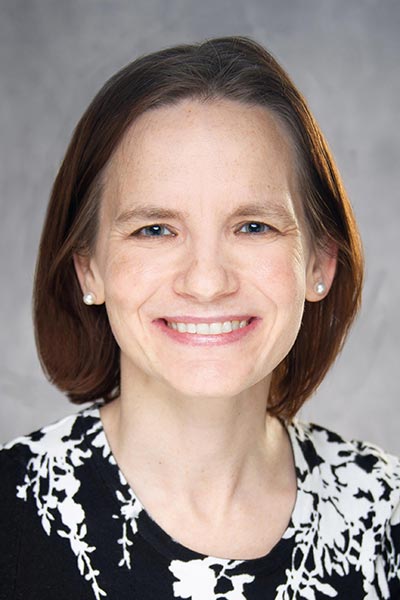As Generation Z accounts for more and more of the rheumatology workforce, educators must examine how to best train the future clinicians.
A pair of experienced instructors will discuss the impact of generational change on the rheumatology fellowship training environment and strategies to meet the needs of modern learners on Sunday, October 26, in Workforce and Education Debate: Generation Z and Rheumatology Training: Adapt or Uphold Tradition? The session will take place from 1–2 p.m. in Room W187A-C of McCormick Place.

“One of our big goals is to present both sides of this, because there’s a lot of discussion about it,” said Jennifer Strouse, MD, FACR, Clinical Assistant Professor at the University of Iowa Hospitals and Clinics. “Oftentimes, the people teaching in programs are from a different generation than the people experiencing the learning, and things change over time.”
Dr. Strouse will present reasons why the status quo of rheumatology training and curriculum should adapt to best serve Gen Z learners. Juliet Aizer, MD, MPH, Rheumatologist at the Hospital for Special Surgery, will provide rationale for maintaining traditional training paradigms.
“We need to look at the ways that people learn and say, ‘How can we continue to work with people who might be from different generations, but give everybody the best learning experience possible and still end up with the doctors providing great care to our patients and doing excellent research?’” Dr. Strouse said. “We don’t have enough people in the rheumatology workforce. One way that you recruit people is you adapt to what people are looking for.”

New technology and the resources available to rheumatologists, as well as a greater emphasis on work-life balance and optimizing mental health, shape the training needs of Gen Z, she continued.
“We have access to things we’ve never had access to before. This movement toward technology and being able to access things like recorded lectures is a newer generational interest,” Dr. Strouse said. “Gen Z has grown up with this. Their whole lives, they’ve had Wi-Fi and phones and devices that make it much easier to access data.”
When it comes to personal well-being, Gen Z is more likely than earlier generations to demand not just a work-life balance but also a good work environment.
The counterargument is that rigorous training with frank feedback is what best prepares trainees to practice medicine in a complicated field.
“In the past, people would say there was more constructive or critical feedback, and now there’s a movement toward having less of that and more positive feedback,” Dr. Strouse said. “I don’t personally think that those can’t go together. It’s more of a presentation style. I think you can create a great learning environment where you can give constructive feedback that helps people to grow as learners.”
On-demand access to recorded presentations will be available to registered attendees of ACR Convergence following the annual meeting through October 31, 2026.
Don’t Miss a Session

If you weren’t able to make it to a live session during ACR Convergence 2025 — or you want to revisit a session from the annual meeting — make plans to watch the replay. All registered participants receive on-demand access to scientific sessions after the meeting through October 31, 2026.
